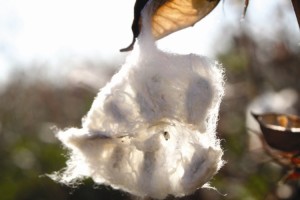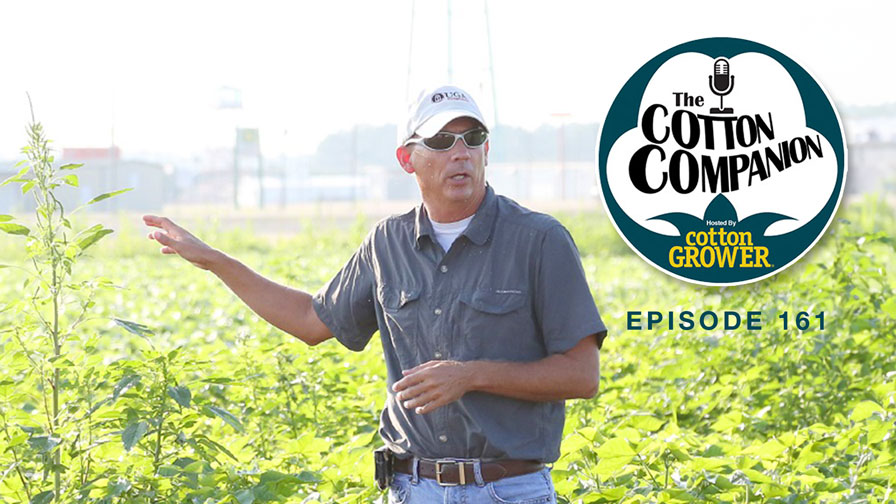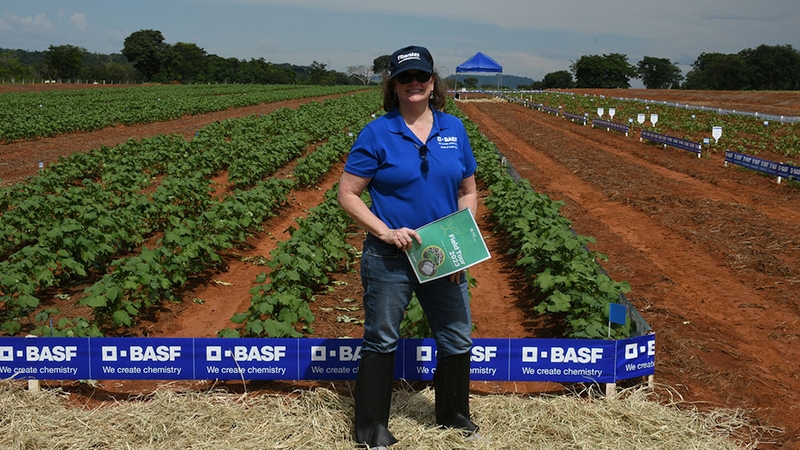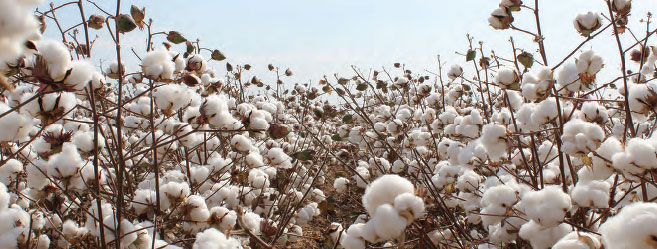NMSU Initiative Promotes Sustainability through Cotton Partnership

New Mexico State University’s Leyendecker Plant Science Research Center, Sodexo Campus Services and Cotton Incorporated are partnering to enhance the university’s sustainability efforts.
The entities will use their expertise and resources in agricultural research, food preparation, recycling and alternative fuel production.
It’s all part of a larger NMSU initiative that is being referred to as “the circle of cotton sustainability.”
The circle starts with research on gossypol-free, or “glandless,” cotton. Oil and meal from glandless cottonseeds can be used for human consumption without the additional gossypol-removal processes that traditional cotton requires in order to eliminate the seed’s toxicity to humans and non-ruminant animals.
One goal of the research is to develop cultivars of glandless Acala cotton that might compete favorably with regular cotton varieties in terms of lint quantity and quality, while offering a robust seed component that can be readily converted into food and feed products.
“We’re looking at using the seed, the hull and any other byproducts that cotton produces to add value and make cotton more profitable for farmers,” said Tracey Carrillo, assistant director of campus farm operations and superintendent of the Leyendecker facility.
Jinfa Zhang, an associate professor in the Department of Plant and Environmental Sciences who heads up NMSU’s Cotton Breeding and Research program, started breeding glandless cotton two years ago and reports that some of the new breeding lines have shown themselves to be good field performers. He is among several NMSU researchers studying various aspects of growing the crop both in the Mesilla Valley and the Artesia area.
Much of the NMSU research on glandless cotton is being funded by Cotton Incorporated, a U.S.-based commodity group with offices around the world that seeks to expand the uses, popularity and profitability of cotton.
“A lot of people don’t realize that the cotton plant has the capability of producing not only fiber for blue jeans and T-shirts, but we also have cottonseed, which is rich in oil and protein,” said Tom Wedegaertner, director of cottonseed research and marketing for the organization.
NMSU cotton researchers and Cotton Incorporated are among those who think using the cottonseed oil and meal “byproducts” to help meet the nutritional needs of humans is a sustainable, as well as a profitable, direction to move.
The idea caught the attention of Katrina Miner, marketing director of Sodexo Campus Dining at NMSU and a member of the NMSU Sustainability Council. She heard Carrillo give a presentation on glandless cottonseed research and development efforts at one of their meetings. Miner and Sodexo colleagues were involved in follow-up meetings with Carrillo, Wedegaertner and representatives of Sysco Foods.
The upshot was that Sodexo began using cottonseed oil in the fryers in all of their dining operations on campus.
Wedegaertner explained that cottonseed oil is a healthy alternative to soy oil and other oils frequently used in fryers. It is low in saturated fat, contains no cholesterol or trans fats, and is a viable alternative for many people with allergies to other types of oil.
After exhausting the oil’s usefulness in the fryers, Sodexo sends it to Leyendecker, where a biodiesel processor donated by Cotton Incorporated can convert 50 gallons of used cooking oil into 50 gallons of biodiesel in 24 hours.
The biodiesel goes into the fuel tanks of a catering vehicle used by Sodexo as a delivery vehicle for campus catering orders and a multipurpose farm vehicle at Leyendecker – both of which were also donated by Cotton Incorporated.
“This all fits in nicely with our 14 commitments for a sustainable campus environment that are part of Sodexo’s Better Tomorrow Plan,” Miner said.
According to Carrillo, some of the biodiesel will also be used to run pumps that irrigate the cotton fields.
NMSU’s manager of environmental policy and sustainability is joni newcomer. She is particularly enthusiastic about the initiative’s waste-reduction aspects.
“This cottonseed oil-to-fuel process is a full circle, or ‘cradle-to-cradle,’ technique which keeps waste – in this case used food oils and their non-recyclable containers – out of landfills,” she said. “We hope that this project will draw the attention of other NMSU units and that they will move to try similar approaches to enhance sustainability at the university.”








